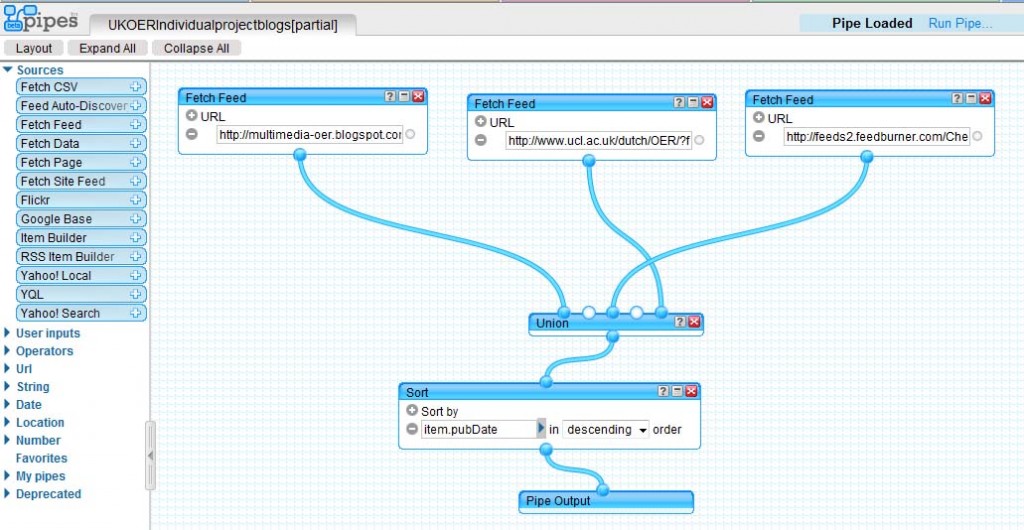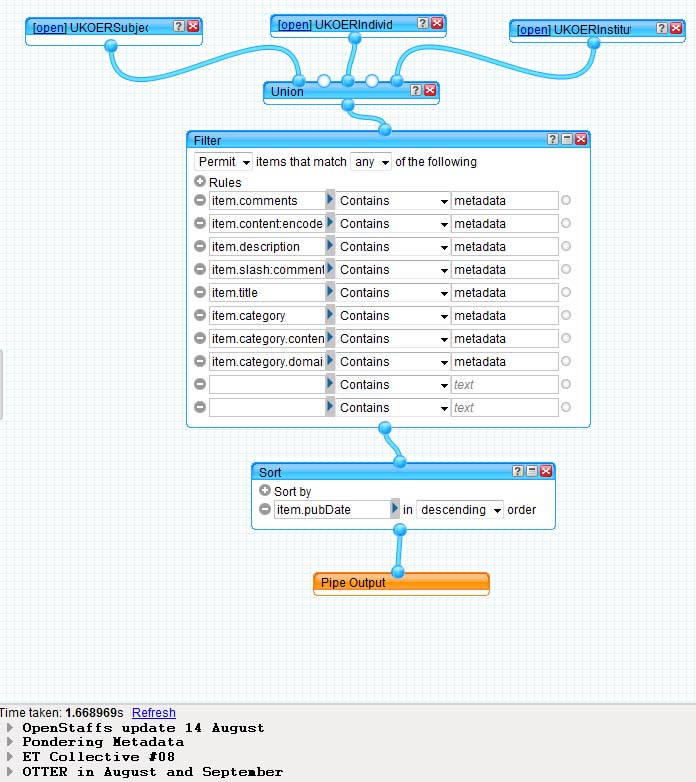OAI-PMH is a odd thing:
- a protocol almost universally implemented in repositories and consequently (usually) publishing metadata about repository contents to the world
- a protocol frequently reviled by anyone trying to aggregate feeds from different repositories and build discovery tools and services on top of that aggregate.
I’m not going to repeat OAI-PMH’s problems in detail (PERX, the experience of the NSDL with metadata quality, Andy Powell, Jim Downing and many others have done that), suffice to say their are issues about how protocol was implemented by software, how it is used by metadata creators, and how not web-friendly it is and niche it remains.
However, I realised recently that I’d begun to think that it must be better by now – surely the teething problems are done with – implementations more mature, record quality better, and aggregation more stable. This is, in part, because it remains the standard for sharing repository metadata and because in a number of settings it works well – there are plenty of communities using it to establish and provide services either by creating ‘closed’ controlled conditions through communally enforced ways of recording information and application profiles, guidelines and ‘political’ agreements in additional to the protocol or by creating tools that simply hack their way around whatever data they get and offer good enough services.
So it was with interest that I picked up on a discussion on twitter about what’s wrong with OAI-PMH and an upcoming paper on using Atom .[edit: I’m updating this list with fragments of conversation about OAI-PMH if I see them, and the odd link or two] It’s not the first time I’ve caught fragments of conversations on the use of feeds – for example the earlier RSS and repositories discussion.
There are a slew of issues around trying to standardise feed types (as we discovered in the discussions organised around RSS as a possible metadata deposit mechanism). See for example Feed Deposit , OER, RSS, and JorumOpen , and the two later review articles (1 , 2) as well as the email list discussions ). Given the increasing use of RSS or Atom in some of the OER discovery tools, the work listed above, and the wider promotion of it in the UKOER pilot projects, why am I so interested in this discussion about OAI-PMH and about another effort to use Atom/ RSS?
I’m happy to see this debate crop up again in the wider (library) repository community for two reasons:
1) perhaps obviously it reaffirms the issues with OAI-PMH, that they haven’t changed, and the possibilities RSS/Atom offers,
2) more importantly it’s bringing the discussion about the feeds produced by repositories into the library/ scholarly works communities. Like it or not those are the communities who are most using repositories and the communities who can to some degree shape the development of repository software and specifications. Few repository platforms natively support much customisation of the feeds they produce and until the wider repository community wants that type of functionality or control and begins to think how update or move beyond OAI-PMH* there’s little reason for repository developers to work on the problem.
Without those changes anyone wanting to manage learning materials in a repository still has to hack their own fixes, build their own repository – or not use repositories (but that’s another question).
*I should note: I like OAI-PMH – I can play with in a browser, repository explorer is a good tool, and using OAI-PMH I can get and interact with someone else’s ‘raw’ metadata. – I’m just no longer convinced it’s the right tool to share metadata – in part by how few successful discovery services there are which use it.

